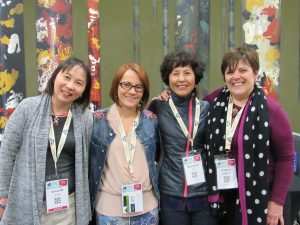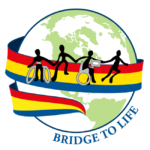 Goal
Goal
The primary goal of the Teacher in Residence program is to assist the candidate in developing a skill base and expertise in the area of augmentative/alternative communication service delivery within an educational context. Candidates who are selected for the program already possess the educational background, professional experience and appropriate licensure/credentialing in their home country to provide services to individuals with disabilities (e.g. special-education, speech-language pathology).
Individualized Development Plan
To achieve this goal, at the beginning of the residency, an Individualized Development Plan is completed by the resident and his/her support team. Benchmarks are identified based on the resident’s self-review of competencies determined by the Teacher in Residence’s support team to be relevant to the residency experience.
Learning Context and Opportunities
A variety of learning contexts and opportunities are available to the team in addressing the benchmarks of the Individualized Development Plan. These include, but are not limited to:
- research and review of student records and reports
- observation of interdisciplinary team members, both within and outside of The Bridge School
- participating in interdisciplinary team meetings
- participating in parent conferences and planning/review meetings
- generating written protocols for facilitating communication and interaction
- constructing and implementing lesson plans and instructional activities that promote active participation of students
- planning, preparing and using low-technology communication systems (i.e. communication books, eye gaze communication systems)
- developing skills in operating and programming individual student’s voice-output communication systems
- developing skills in operating educational equipment software
- implementing individual and group instructional activities
- facilitating communication during leisure, lunch and recess activities
- assisting students in regular education classroom environments, including adaptation and modification of curriculum and materials
- adapting currently available assessment tools
- evaluating students using adapted tools and assessment strategies
- reading and synthesizing current research and writings in the area of AAC
- completing projects for the development of resources and materials
- participating in trainings, workshops, seminars and conferences
- participating in study and/or discussion groups
- participating in outreach project teams
- completing university coursework
Monitoring and Evaluation
Using the Individualized Development Plan as a guide, weekly plans reflect activities targeted to support the learning and development of skills identified. In addition, long-term projects will be developed over the course of the residency to support areas of more in-depth interest or need. A major emphasis will be on the transferability of skills/knowledge base that can be implemented in the resident’s home country.
On a bi-monthly basis, the team will review the plan and the progress made to date in addressing the benchmarks. New priorities and targeted learning contexts and opportunities will be identified.
At the completion of the residency, the resident will complete a post-evaluation using the same tool (roles and competencies), for comparison of what has been gained and perceived proficiencies and knowledge base and/or skill level as it relates to AAC service delivery.


